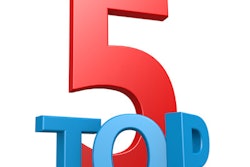
As a private-practice owner, you are ultimately responsible for the profitability, or perhaps sustainability, of your business. Because I've worked with tens of thousands of dentists over the past three decades, I know that unless you have an MBA next to your DDS or DMD, you likely entered the profession without some critical practice management skills.
I also know that if you've experienced success in your practice in the past, you may be lured into thinking "I've got this!" and do nothing but question accounting when things start to go downhill. Instead of pouring over the books, I want you to consider the seven words that are costing you more money in your practice than the latest piece of equipment you purchased.
 Jay Geier is the president and founder of the Scheduling Institute.
Jay Geier is the president and founder of the Scheduling Institute."We have always done it that way."
These seven little words can wreak havoc on your bottom line.
Do they sound familiar? Maybe too familiar? Do you and your team tend to stick to methods that are comfortable and "safe" simply because you don't know any differently?
If so, it's time to seriously examine the way your practice operates.
Let's take, for example, one of the biggest problem areas that I see dentists struggle with regularly: scheduling new patients.
Unfortunately, most dentists don't even recognize this as a problem area, or see its crippling effect across the board. But when we go into offices, this is what we often see: a seasoned front desk team who's been answering the phone for years. This can be read as "always doing it this way."
It's easy to overlook, especially because your focus is on treating patients. Unfortunately, it is costing you money. Lots of money.
Valuable new patients are slipping through your fingers each week because you've never trained your team on the right way to handle new patient phone calls. They don't know how important these calls are, and they aren't equipped to maximize these interactions.
Here's how it goes: A potential patient sees your marketing (or is referred) and calls your practice. The phone is answered by one of your team members. He or she gets into a long, unfocused conversation. Your team member -- who hasn't been trained on streamlined scheduling, selling the value of treatment, avoiding verbal vomit, or closing the sale -- attempts to answer all questions to the best of his or her ability. The person has no control of the conversation. The caller hangs up. Nobody gets on the schedule, and the potential new patient moves on to the guy down the street.
“New patients are the lifeblood of your practice, and your telephones are the most highly neglected area of the average dental practice.”
This isn't a fictional scenario. My team and I have conducted more than 40,000 mystery calls to practices just like yours. We have heard the same mistakes made again and again -- and again. They aren't equipped to consistently schedule new patients because you've never invested in training them.
Successful business owners will always look at better ways to run their organizations. As a private-practice owner, revamping the way your phones are being handled is a no-brainer.
The fact is, new patients are the lifeblood of your practice, and your telephones are the most highly neglected area of the average dental practice. Period.
Let's look at some math. Every single new patient you lose is worth about $1,500 to your practice over the patient's lifetime (and that's a low-end estimate). So let's say that 15 new patients call your practice this week, five of them hang up the phone without being scheduled, and this happens every week. That means your practice loses approximately $7,500 each week, which adds up to $30,000 each month, which is a total of $390,000 in one year. Let that sink in for a second, and think about what you'd do with an extra $390,000 every year.
I can promise you one thing. Our clients and possibly your competitors -- the ones who are netting millions of dollars each year -- are training their teams. They are adapting to the industry. They are tired of letting new patients and money slip through their fingers, so they've decided to do something about it. Simply by changing the way they think and investing in training their team on the phones, these dentists have increased their new patients between 20% and 200% -- and their results have increased across the board.
So, it's time to ask yourself this question: Can you afford to be complacent in your practice? Let's start with your phones.
Jay Geier is the president and founder of the Scheduling Institute.
The comments and observations expressed herein do not necessarily reflect the opinions of DrBicuspid.com, nor should they be construed as an endorsement or admonishment of any particular idea, vendor, or organization.


















